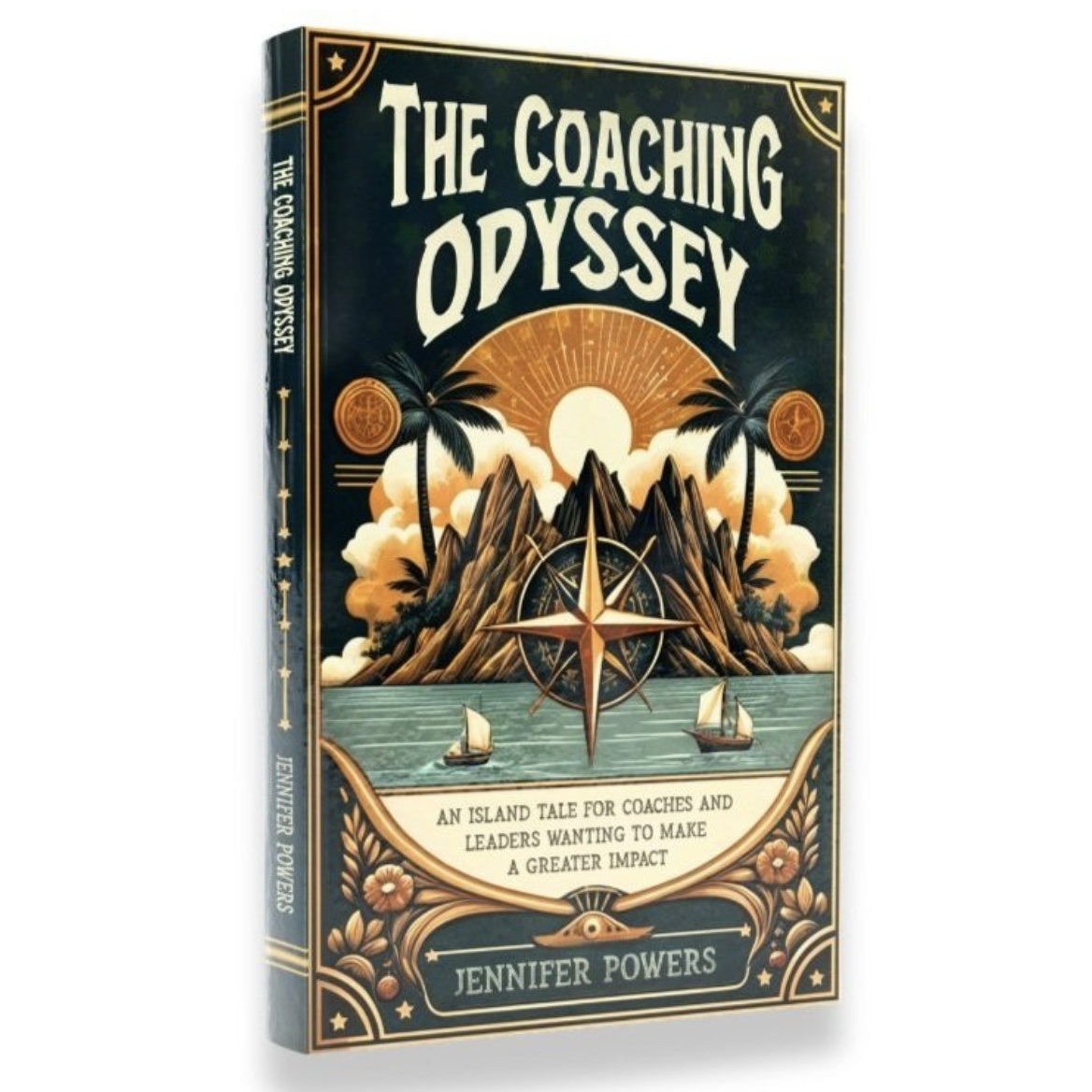What We're Reading Now
Courage in the Mirror
22 April 2025
Rachel read The Coaching Odyssey: An Island Tale for Coaches and Leaders Wanting to Make a Greater Impact by Jennifer Powers and was reminded of the courage required to have many questions and few answers.
Tags: coaching, patrick lencioni, rachel read
Last fall, a dear client-friend gave me a copy of The Coaching Odyssey by Jennifer Powers. It’s a slim volume, written as a novella in the style of Patrick Lencioni, and I read most of it on my flight home. I recently returned to it for a dose of inspiration and was reminded of the intellectually simple yet practically difficult practice of being an effective leadership coach.

Fundamentally, professional coaches support their clients through powerful questions rooted in a belief that each person is capable, creative, and self-determined. In this way, coaches act as a thought-provoking mirror, prompting a client to see themselves in a new light and make choices informed by their own aspirations and lived experience. A cynic might say that the coach’s job is easy; it’s the client who must identify options, consider consequences, and take action while the coach simply asks questions, listens fully, and reflects observations.
Such is the story of Lucas, the successful professional-turned-coach who embarks on a retreat to deepen his coaching practice under the tutelage of master coach Marina. Lucas soon realizes how challenging it can be to embrace seemingly simple lessons like, “Believe in others more than yourself,” “Practice embracing silence,” and “Use reflection as a powerful tool to build awareness.” At one point, he even questions Marina, asking (paraphrased): “So I should expect clients to pay me while I just... sit there?”
That, to me, is the courage required of the coach or leader. I find that it is the moments when I am most challenged, most stretched, that is is most difficult for me to embrace the silence and trust in others’ knowing. It can become a vicious cycle: I feel pressured so I insert my advice, and then the advice doesn’t ‘land’ or take root in the client’s mind, and then I feel more pressured, and so on. In these moments, the quiet voice reminds me that my greatest superpower is to show up and listen, notice, and hold space. And that 99 times of 100, that is enough.

Remembering this is equally important when we aren’t acting in the role of professional coach. Even the most empowering and well-intentioned leaders can limit their colleagues by offering advice before asking a question. That’s not to say that there isn’t a time and place for giving direction (cue John Whitmore and Coaching for Performance) or that clients don’t sometimes want and need a bit of coaching alongside a bit of consulting. (Powers calls this “coachsulting,” and I might need to add the term to my vocabulary.) It’s simply to say that sometimes—not all times, but oftentimes—the most powerful and courageous thing we can do might appear on the surface to be doing nothing at all. Imagine that.







Comments
Our Comment Policy:
Our blog posts are only half of the conversation. What our readers have to say is equally important to us, and we're grateful for all the comments that continue the dialog.
To ensure that the discussion here is as useful as possible to all of our readers, please be respectful of our contributors and refrain from harassing, threatening and/or vulgar language. We reserve the right to screen and remove any comments from the site. If you have a question about a comment or want to discuss our policy, please contact us. We'll talk it over.